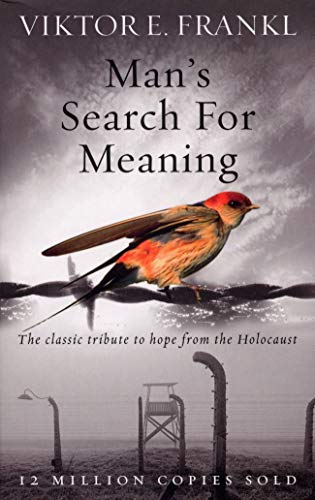Auteur: Frankl, Viktor E
Édition: Export e.
Nombre de pages: 160
Éditeur: Rider
Date de sortie: 07-02-2008
Détails: Présentation de l’éditeur A prominent Viennese psychiatrist before the war, Viktor Frankl was uniquely able to observe the way that he and other inmates coped with the experience of being in Auschwitz. He noticed that it was the men who comforted others and who gave away their last piece of bread who survived the longest – and who offered proof that everything can be taken away from us except the ability to choose our attitude in any given set of circumstances. The sort of person the prisoner became was the result of an inner decision and not of camp influences alone. Only those who allowed their inner hold on their moral and spiritual selves to subside eventually fell victim to the camp’s degenerating influence – while those who made a victory of those experiences turned them into an inner triumph. Frankl came to believe that man’s deepest desire is to search for meaning and purpose. This outstanding work offers us all a way to transcend suffering and find significance in the art of living. Revue de presse « Remarkable…It changed my life and became a part of all that I live and all that I teach. » « An enduring work of survival literature. » ( New York Times) « A book to read, to cherish, to debate, and one that will ultimately keep the memories of the victims alive » (John Boyne, author of The Boy in the Striped Pyjamas) « I have loved this book for so many years, and I think every human being should read it. » (Simon Sinek) « Viktor Frankl…one of the moral heroes of the 20th century. His insights into human freedom, dignity and the search for meaning are deeply humanizing, and have the power to transform lives. His works are essential reading for those who seek to understand the human condition. » Biographie de l’auteur Viktor Frankl was born in Vienna in 1905 and was Professor of Neurology and Psychiatry at the University of Vienna Medical School. His wife, father, mother and brother all died in Nazi concentration camps, only he and his sister survived, but he never lost the qualities of compassion, loyalty, undaunted spirit and thirst for life (earning his pilot’s licence aged 67). He died in Vienna in 1997.
Soyez le premier à laisser votre avis sur “Man’s Search For Meaning: The classic tribute to hope from the Holocaust” Annuler la réponse
Vous devez être connecté pour publier un avis.





















Avis
Il n’y a pas encore d’avis.